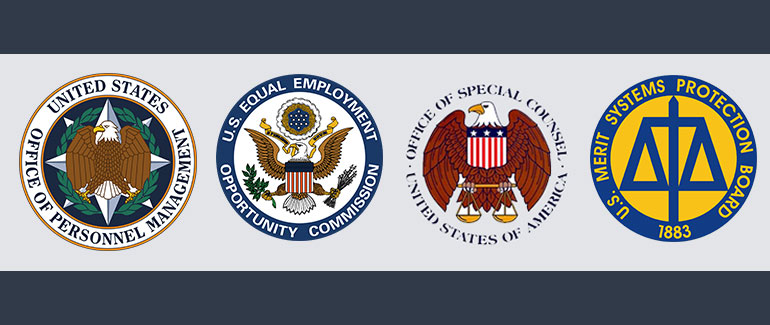Clarifying Protections for LGBT Federal Workers

Yesterday, the four agencies jointly responsible for equal opportunity for federal workers issued a new handbook outlining protections and procedures for addressing bias based on gender identity and sexual orientation. The guide makes clear that both gender identity and sexual orientation discrimination are prohibited under Executive Orders, federal civil services rules, and by Title VII of the Civil Rights Act of 1964 as forms of sex discrimination. It walks employees through the different procedures and remedies available in LGBT discrimination cases. The guide was published jointly by the Office of Personnel Management, the Equal Employment Opportunity Commission, the US Office of Special Counsel, and the Merit Systems Protection Board.
Numerous opinions in recent years, including from the EEOC and the Attorney General, have made clear that Title VII prohibited discrimination based on gender identity. Most recently, an April EEOC decision made clear that employers must provide workers access to restroom consistent with their gender identity—a decision backed up this week by guidance from the Occupational Safety and Health Administration (OSHA). Less well known is that courts and the EEOC have increasingly viewed adverse job actions based on sexual orientation—whether because an individual is in a same-sex relationship or is simply known to be gay, lesbian, or bisexual—as fundamentally gender-based as well.
Importantly, Title VII of the Civil Rights Act applies to job-based health benefits. Many federal employee health benefit plans still have exclusions that target transgender people, in apparent violation of the Act. The National Center for Transgender Equality (NCTE) urges all federal employees who have had a claim for medically necessary transition-related care denied, because of an exclusion, whether for themselves or a dependent, to file a complaint with OPM and to seek help from an LGBT or allied legal organization. Follow the disputed claims section of your health plan’s brochure for instructions on initiating this process.
We hope this new guide will help inform and empower federal workers to assert their rights and to file equal employment opportunity (EEO) complaints when necessary. Private and state and local government employees are also covered by Title VII and can file complaints with the EEOC. For more information on how to file complaints and where to find legal help, check out NCTE’s Know Your Rights employment resource.
Addressing Sexual Orientation and Gender Identity Discrimination in Federal Civilian Employment

